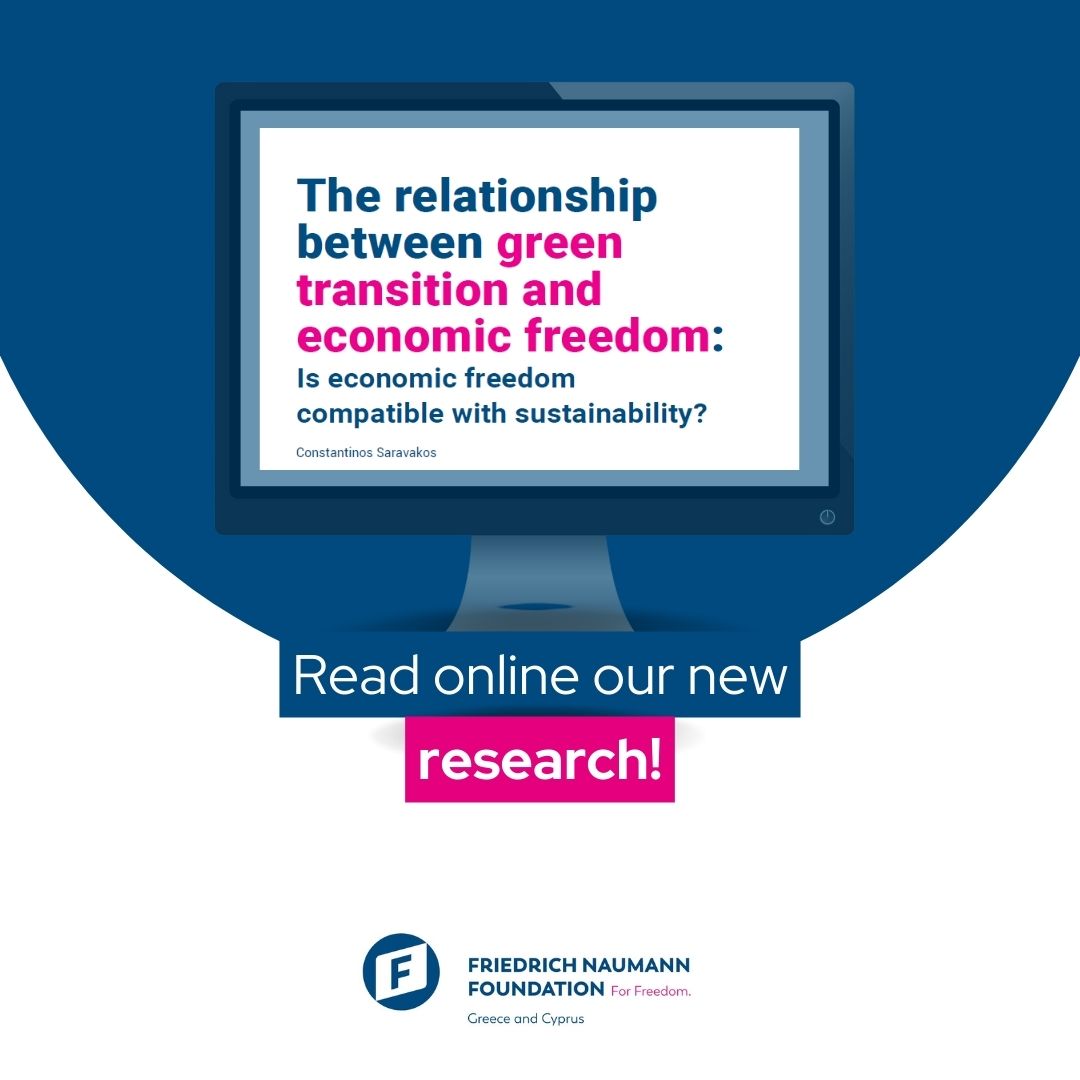RESEARCH
The relationship between green transition and economic freedom: Is economic freedom compatible with sustainability?

This policy paper delves into the relationship between economic freedom and sustainability. At first, the paper offers a comprehensive examination of the empirical research, shedding light on how the impact of economic freedom on sustainability can be influenced by various contextual factors. What emerges is a nuanced picture: while some studies reveal a positive connection between greater economic freedom and improved environmental outcomes, especially in countries that prioritize business-friendly environments, strong property rights, and trade freedom, there's also evidence to suggest that economic freedom can have detrimental effects on the environment, particularly in developing nations where regulatory control is limited, and unsustainable economic growth leads to environmental degradation.
The paper also offers a comparative bivariate analysis, unveiling a consistent correlation between environmental performance (measured by the Environmental Performance Index) and different areas of economic freedom (proxied by the Economic Freedom of the World composite indicator). Across various economic freedom indicators, such as the legal systems and property rights, monetary stability, international trade freedom, and regulatory frameworks, a pattern emerges: higher levels of economic freedom often align with improved environmental performance. Yet, an intriguing exception is the size of government, where greater government involvement tends to correspond with better environmental outcomes. Notably, regions categorized as "Least economically free" consistently exhibit lower environmental performance compared to other quartiles within each category. However, within the Size of Government category, regions with limited government involvement surprisingly demonstrate, on average, lower sustainability performance than the "Least Free" group of countries, suggesting that increased government influence may contribute to more favorable environmental outcomes.
The analysis also focuses on the Greek case, demonstrating that the country lags behind the EU and OECD averages in both environmental performance and economic freedom.
These findings underscore the urgency of adopting a sustainable economic model from a liberal perspective, one that can drive economic growth, protect the environment, and enhance living standards. The paper culminates with a set of tailored policy approaches designed to tackle the pressing environmental challenges that have dominated public discourse over the past decade.
